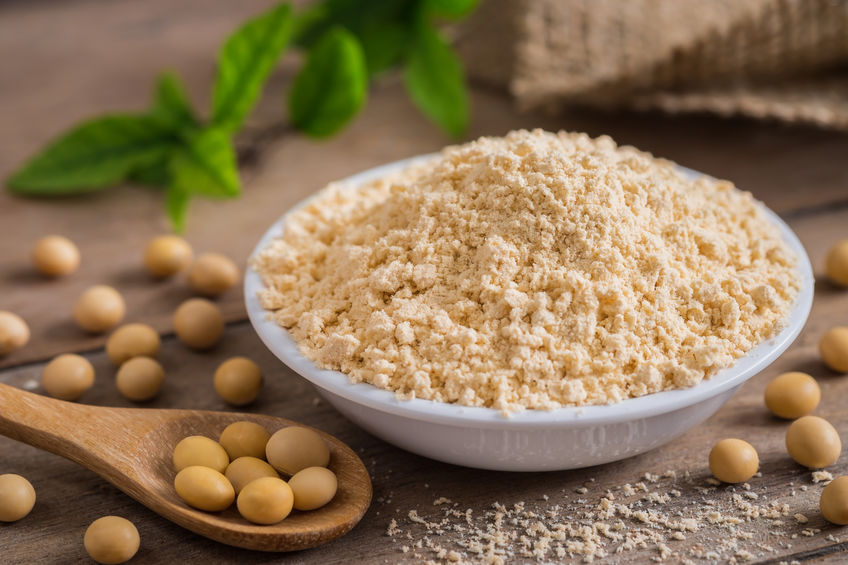By John Salak –
Is soybean bad for you? There is good and bad news for soy lovers. Research has just spouted indicating that soy may be able to help reduce memory impairment while also lessening the risk of stroke. Unfortunately, there is growing concern that global soybean production is fostering climate change, causing some traditional soy consumers to seek out environmental-friendly alternatives.
On the good news front, there are a number of soybean benefits. Diets rich in nuts, vegetables and soy may help lower an individual’s risk of stroke compared with those who eat meat and fish, according to a study from Tzu Chi University in Taiwan.
Reducing the risk of stroke is no small matter as strokes are the second most common cause of death worldwide and the leading cause of disability. They also contribute to dementia.
“If we could reduce the number of strokes by people making changes to their diets, that would have a major impact on overall public health,” explained Chin-Lon Lin, the study’s author.
The university’s 9-year study focused on over 10,000 people from two Buddhist communities in Taiwan. None of the individuals involved had previously had strokes and about 30 percent of the participants were vegetarians.
After adjusting for age, sex, smoking and health conditions like high blood pressure and diabetes, researchers discovered that vegetarians in one group had a 74 percent lower risk of ischemic stroke than non-vegetarians. In the second group, vegetarians had a 48 percent lower risk of overall stroke, a 60 percent lower risk of ischemic stroke and a 65 percent lower risk of hemorrhagic stroke.
“Overall, our study found that a vegetarian diet was beneficial and reduced the risk of ischemic stroke even after adjusting for known risk factors like blood pressure, blood glucose levels and fats in the blood,” said Lin. “This could mean that perhaps there is some other protective mechanism that may protect those who eat a vegetarian diet from a stroke.”
Soy’s benefits may also extend to helping individuals reduce memory impairments. Kyushu University in Japan discovered that soy proteins ingested by mice appeared to help improve their memories and cognitive functions, which could have significant ramifications for individuals suffering from Alzheimer’s disease.
“We still need studies to see if these benefits carry over to humans, but we hope that this is a step toward functional foods that could help prevent memory degradation or even improve our memories,” reported Toshiro Matsui, a professor in the Faculty of Agriculture at the university.
Reducing the risk of stroke and potentially helping to beat back the impact of Alzheimer’s goes in the plus column for soy. Unfortunately, this ubiquitous bean that has found fame as a substitute animal protein is drawing increased fire because of its impact on climate change.
Researchers from the University of Bonn recently underscored the negative impact of global soy production and trade, noting that in some areas related CO2 emissions are more than 200 times higher than in other areas.
The rise in greenhouse gas emissions tied to soy production is the result of multiple factors. Chief among these is the conversion of wide swaths of natural vegetation into arable land. Greenhouse gases are also released when soybeans are harvested, processed into derived products and then transported to ports for export.
Bonn’s study noted that regional factors contribute to the number of gases released, making it possible to lessen the impact on the climate by building supply chains that take these local factors into consideration.
Consumer’s choice, however, may have already started impacting production and distribution. The German study noted that soy shipments to Europe have tailed off in the last decade, although these shipments still come primarily from deforested areas where gas emissions run high.
The University of Copenhagen’s Department of Food Science also added a new twist to the soy production-consumption conundrum. Its research notes that at least in Demark there is a growing desire to either supplement or completely replace animal-based proteins with plant-based alternatives. Much of this shift is being spurred on by climate considerations, according to the university.
These apparently competing Danish desires put soy in an awkward position and may increasingly lead Danes to embrace the fava bean. The university’s research maintains that fava beans may actually hold great promise of being a rich plant protein source that is environmentally friendly.
“Many consumers are crying out for alternatives to soy, a crop that places great strain on the environment. This prompted us to find a method of processing fava beans in such a way that allows us to produce a concentrated protein powder. One of the advantages of fava beans is that they can be grown here, locally in Denmark. This is excellent news for the climate,” reported Iben Lykke Petersen, an assistant professor at the University of Copenhagen.
Petersen notes that fava beans are fewer climate considerations because they can be cultivated locally, require less disruption to natural areas and have shorter shipping requirements. She added that fava beans also showed the greatest potential for being turned into protein powder compared to lentils, amaranth, buckwheat and quinoa.
One other note. Fava beans apparently pass the texture and taste test, at least according to Petersen.
Are the days of the soybean numbered? Probably not, at least not anytime soon, although it is likely to face some significant headwinds going forward.












